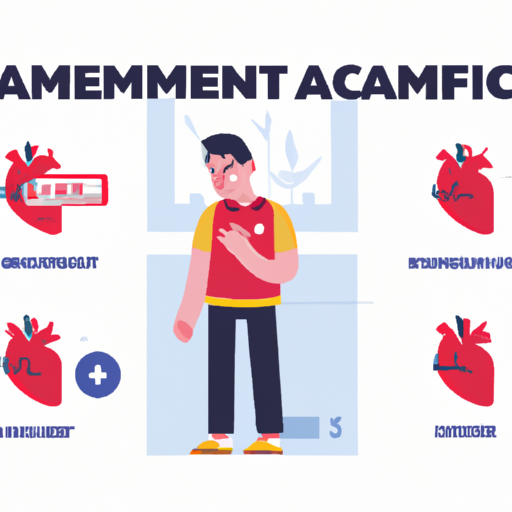Uncategorized
Recognizing the Symptoms of Anemic Heart Failure
Anemia and Heart Failure: Understanding the Connection
If you or a loved one has been diagnosed with anemia or heart failure, you may wonder what connection these two conditions have. While they may seem like separate issues, research has shown a significant relationship between anemia and heart failure.
Understanding this relationship can help you better manage your health and reduce your risk of complications. This blog post will explore the causes and symptoms of anemia and heart failure and how they are linked. Let’s dive in!
Have you considered clinical trials for Anemia?
We make it easy for you to participate in a clinical trial for Anemia, and get access to the latest treatments not yet widely available – and be a part of finding a cure.
Signs and symptoms of anemic heart failure
Anemia is a condition that occurs when your body has a lower number of healthy red blood cells or hemoglobin levels. This iron-rich protein in red blood cells is responsible for carrying oxygen. When you have anemia, your body fails to get sufficient oxygen supply.
Anemia is linked to heart failure, a condition that makes it difficult for the heart to pump enough oxygenated blood to various organs. In simpler terms, anemic heart failure reduces the oxygen-carrying and delivery capacity of the circulation system.
As a result, anemia and heart failure have some common signs and symptoms, which may include:
- Fatigue
- Shortness of breath
- Weakness
- Rapid or irregular heartbeat
- Chest pain or discomfort
If you have anemia, you may also have some of the following additional signs and symptoms:
- Pale skin
- Cold hands and feet
- Restless legs syndrome
- Sore tongue
- Dizziness
- Headaches
Heart failure, on the other hand, may make you experience the following additional signs and symptoms:
- Swelling around the ankles or legs
- Dry cough or wheezing
- Reduced ability to perform physical activities
- Difficulty focusing
- Swelling of the abdomen (ascites)
- Frequent urge to urinate, especially during the night
- Lack of appetite
- Stomach upset, including feeling bloated or nausea
What is anemia?
Anemia is a condition that is characterized by a reduction in the number of healthy red blood cells. The Centers for Disease Control and Prevention shows that about three million Americans have anemia.¹
Several factors can cause anemia. Different types of anemia are classified according to their causes and include the following:
- Iron-deficiency anemia
- Vitamin B12–deficiency anemia
- Hemolytic anemia²
Anemia can also be caused by a lack of production of red blood cells from the bone marrow due to a lack of stimulating hormones (erythropoietin) or issues affecting the bone marrow itself. This and iron-deficiency anemia are the most common types of anemia in individuals with heart failure.
Heart failure explained
Your heart is responsible for pumping oxygen-rich blood to other organs. This happens during the contraction of the heart muscles when the heart pushes blood into the blood vessels.
Heart failure is chronic and progressive conduction that inhibits the ability of the heart to pump oxygenated blood to all organs in your body.
When you have heart failure, your heart cannot pump blood to meet its oxygen demand. Since your heart uses its muscles to pump blood, heart failure would mean the muscles have become weak. To meet its workload, the heart may increase the muscle mass, enlarge, or increase its pumping rate. Your body may also respond by narrowing blood vessels to increase blood pressure.
Iron deficiency anemia and heart problems
Iron deficiency means you have less than the required level of iron. Iron is used by the body to make hemoglobin, which carries oxygen. If you have an iron deficiency, your body will not produce enough hemoglobin, which means your blood will have reduced oxygen-carrying capacity.
The reduced oxygen-carrying capacity leads to anemia, which means your body cells and organs are not getting enough oxygen. Your heart has to work harder to

 Skip to content
Skip to content


